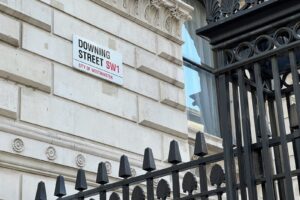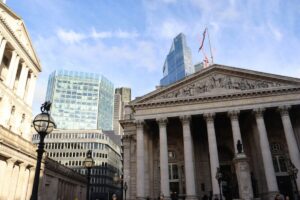Last week featured a rarity: a hawkish Fed
George Lagarias, chief economist at Mazars, on three things for investors to watch this week:
- As a result of a more hawkish Fed meeting the ‘reflation trade’ was wrapped up by investors. Gold dropped 5%, the Dollar rebounded, value lost ground to growth and the S&P 500 saw its worst day in more than a month. 5-year inflation expectations in the US dropped to 2.3%, down from a 2.7% high a few weeks ago, and bonds rallied.
- We believe that this may have been an overreaction of a market that has been moving sluggishly for the past two months. First, the Fed has often indicated a course it did not follow. In this case, we think it is possible that the Fed wants to have all the bases covered in case it finds itself behind the curve at the eventuality of record fiscal stimulus by the new President.
- Instead of exhaustingly dissecting every word the Fed says, investors might be best served to think about the implications of a rise in long term inflation and growth as governments are becoming more active in stimulating growth.
“Last week featured a rarity: a hawkish Fed. The Federal Open Markets Committee (FOMC), the Fed’s rate setting body, suggested two interest rate hikes in 2023 up from none at the last projection in March. Chair Powell also indicated that the committee had also initiated discussions about tapering asset purchases, although he said that they are ‘ways away from that point’.
“To no one’s surprise, investors’ Pavlovian instincts kicked in and they quickly wrapped up the ‘reflation trade’. Gold dropped 5%, the Dollar rebounded, value lost ground to growth and the S&P 500 saw its worst day in more than a month. 5-year inflation expectations in the US dropped to 2.3%, down from a 2.7% high a few weeks ago, and bonds rallied. We believe that this may have been an overreaction of a market that has been moving sluggishly for the past two months.
“First, in many instances in the past the Federal Reserve had indicated potential rate hikes without following through. Between now and the next 730 days many things can happen. Conditions are volatile enough, the economy has a lot of slack and there’s little visibility of what the post-Covid world will look like. Additionally, the market is holding its breath in anticipation of Mr. Biden’s stimulus plan. It is possible that the Fed wants to communicate rate hikes. It is equally possible that it wants to have all the bases covered in case it finds itself behind the curve at the eventuality of record fiscal stimulus by the new President.
“Second, less than one percent rates in two years’ time is hardly considered tightening. Markets often confuse tightening cycles with rate adjustments. We would expect the Fed to communicate a ‘cycle’ well in advance.
“The reaction really serves to highlight how important monetary accommodation still is for risk assets. This can, however, change. Instead of exhaustingly dissecting every word the Fed says, investors might be best served to also think about the implications of a rise in long term inflation and growth as governments are becoming more active in stimulating growth.”












